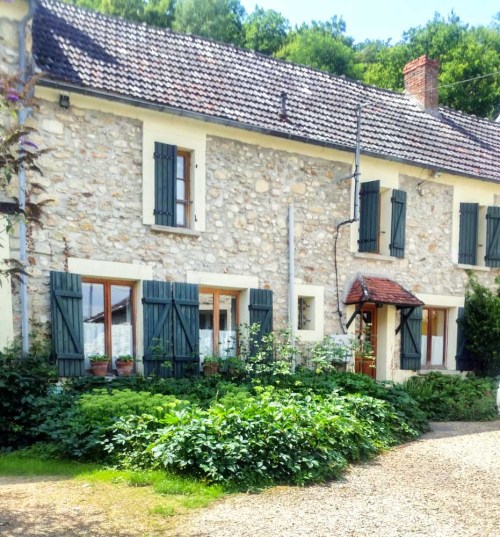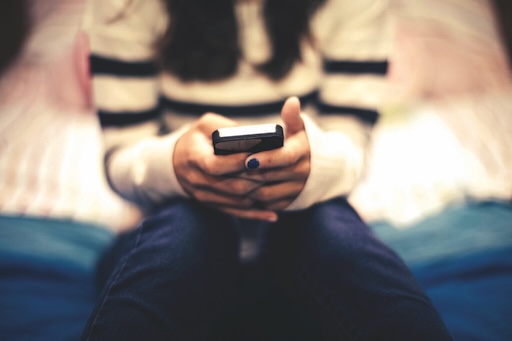People in other nations share their observations of living life in a COVID-19 world
Published 5:00 am Saturday, April 4, 2020

- Meredith Sykes and Bill Graham are hunkered down for the duration at their stone farmhouse bed-and-breakfast in Reuilly, France.
PENDLETON — We are not alone.
In almost every other country in the world, people are experiencing pandemic and the restrictions and terror that come with it. The East Oregonian reached out to individuals in Italy, France, Japan, Madagascar and Panama to get a snapshot of what people around the world are experiencing in a time of COVID-19.
David Newport, Akashi, Japan
Former East Oregonian page designer David Newport now lives in Akashi, Japan. The home he shares with his wife and three young daughters is a 45-minute train ride from Osaka.
As a translator for the Ida Corporation, he spent the first two weeks of the country’s coronavirus outbreak translating closure announcements for hotels and restaurants. He said the prime minister quickly closed schools and asked residents to refrain from unnecessary outings. Japan, he said, has so far avoided the explosive outbreaks of Italy and the U.S.
Large attractions, such as Tokyo Disneyland and Universal Studios Japan, are shuttered. Sumo wrestling matches were held with no spectators.
Newport said he continued to commute to his job for a while wearing a mask, but last week he began teleworking.
“Various cities are also banning picnics under the sakura cherry trees just beginning to bloom,” he wrote in a Facebook message. “Governors are starting to request reductions in unnecessary travel between some prefectures (mine included).”
Newport said American friends ask why Japan seems to be experiencing a milder outbreak.
“I can think of a few reasons. First, health care is very convenient and easy to get here … so I think Japan has done a good job at tracking clusters and catching sick people early. Second, Japan has been facing a population crisis for years due to an aging society — the “Gray Wave” — so we tend to recognize it as our duty to care for the elderly.”
People also ask him if he thinks Japan has purposefully kept test numbers low to keep a good image as the Olympics approached.
“I can’t say, but I haven’t felt like the country is dragging its feet or working to keep things quiet,” he said. “Nightly news is still focused on COVID-19, and talk of more drastic measures are still taking place. At this point, though, I can only hope we’ve flattened the curve enough. I’d like to think we have.”
Ana Oliveira, Ploaghe, Italy
Italians know the terror of COVID-19 even more than most. Almost 14,000 people have died there since the virus started rampaging the country in late February. Funerals are prohibited and bodies go to crematoriums. The mortality rate of 10.2 percent is higher than elsewhere maybe owing to Italy’s large elderly population or possibly because low rates of testing means the real number of cases simply aren’t known.
Ana Oliveira, an agricultural researcher who lives in Italy, felt safe at first since she, husband Michele Salis and their two small children live on the island of Sardinia, giving them some separation from the rest of the country. For a while the couple lived life as usual, then things changed fast as the virus spread, finally reaching Sardinia. She and Michele, a research scientist with Italy’s National Research Council, now work from home.
In a Facebook message, she said outside criticism of the Italian government for reacting too slowly to the pandemic seems unfair.
“I felt glad that the Italian government acted quite rapidly, closing the schools and isolating the most affected areas for quarantine,” Oliveira wrote. “However, too many people acted like this new disease was not a matter of concern and kept their living standards and priorities unchanged.”
The virus continues to spread in Sardinia and finally arrived in their small village of Ploaghe. To help keep people home, a group of volunteers delivers weekly grocery orders to each house for free.
“I miss going for a ride or to the sea with my family in the weekend, I miss field working with my team, I miss open air,” she wrote, “but I know I have all that really counts at home. I think we can win this war by behaving conscientiously and being respectful of our community and our country.”
Nick’ii Scott, Antananarivo, Madagascar
Nick’ii Scott works as tour guide, showing tourists around the island nation of Madagascar.
Scott has more time on his hands these days. Numbers of tourists dwindled after the government announced a suspension of all international air travel on March 20. The country recently went into lockdown and as of Friday, has 59 confirmed cases.
A week and a half ago, Scott started feeling ill with a fever and checked into a quarantine center in the capital city of Antananarivo where he lives.
“I was out of breath. I was extremely anxious about myself and my little family,” he wrote in a Facebook message. “It seems rather difficult for us to get to know whether it is a simple cold or COVID symptoms. Fortunately a cargo from China came on the 25th of March and brought sophisticated stuff for COVID-19 testing.”
Scott, who was allowed to leave the hospital and spend the rest of his quarantine in a hotel, still doesn’t know whether he actually had the virus, but feels better.
He said Madagascar appears to be among the last countries affected by COVID-19 and that “the first case was detected on the 20th of March, brought by three passengers from the same flight coming from France on the 17th.”
Scott said he feels frustrated about about some residents’ cavalier attitudes toward the virus.
“In general, some people do not really care about it, as we can still see a bunch of people here and there, whereas others follow the instruction to stay home,” he wrote. “The decision was quite late for the state to close down the airport and the border, but Malagasy people are sometimes rather stubborn. The more they are informed, the closer they get to the danger.”
Susan Lavender Kelley, Alto Boquete, Panama
Susan Lavender Kelley, formerly of Pendleton, lives in the Central American country of Panama, where coronavirus has radically changed residents’ daily lives.
“COVID-19 has reared its ugly head in Panama,” Kelley wrote in an email. “The danger of COVID-19 has brought the country to a standstill. Only pharmacies and grocery stores remain open and with shortened hours.”
Kelley said the South Carolina-sized nation is home to 4 million people, half of which live in Panama City. As of Friday, Panama had 37 coronavirus deaths.
“People have been practicing social distancing,” she said. “We aren’t even doing the elbow bump any longer. But there apparently are problems in the city with people out on the streets in defiance of the directives.”
A nightly curfew keeps people at home between 9 p.m. and 5 a.m. Women can go out in two-hour time slots on Monday, Wednesday and Friday to purchase necessities. Men may venture out on Tuesday, Thursday and Saturday. Each person has two slots, the times dependent on the last four numbers of the individual’s identification number. Out on the street, people wear masks. The government even sent out a directive about how to safely walk one’s dog during the dog owner’s assigned time slot. Dogs are to be walked inside the yard’s perimeter and cleaned with a moistened towel before going back inside.
Kelley said the government has suspended mortgage payments, electric payments and garbage bills for those who are strapped. Crime is increasing as people lose jobs and income.
“I live in a gated community with people from several other countries and including Panama,” she wrote. “To a minimum wage person, it appears that we are all very wealthy. We have had two attempted break-ins. People are starting to get desperate for cash. Our country-wide quarantine is scheduled to end April 8, but that can change. Laws are made and changed here in a space of a moment.”
Kelley misses Kris who died in 2018. She keeps sane by walking with friends while keeping their distance, reading, quilting, watching Netflix and talking with her four siblings by phone.
Meredith Sykes, Champagne, France
Meredith Sykes and her partner Bill Graham wait out the pandemic inside the bed-and-breakfast they operate in Champagne, France.
“France is on total lockdown as of March 17,” Sykes said in an email. “All must generally stay at home; if going out we need to carry a formal statement noting the necessity. Online forms have been sent to everyone in France for this purpose.”
Sykes is an über-active octogenarian, who walked the Camino de Santiago almost every year until her health recently took a downward turn.
She said President Emmanuel Macron spoke to the nation on March 16 about what needed to be done and how the nation’s health system would adapt. At that time, he said the lockdown would last at least 15 days.
“We are at war,” Macron told his nation. “The enemy is there, invisible, elusive, advancing.”
As of Friday, France had 59,105 confirmed cases of coronavirus and 4,503 deaths.
Sykes said the country’s borders are closed with no travel permitted except to buy food or seek health assistance. Meredith and Bill, who are in their 80s, are battening down. After closing their bed-and-breakfast, they stocked their farmhouse with food and medicine.
“We hope to go forward with courage and strength of will towards the inevitable,” Sykes said. “All life is chance; things are or are not. I shall not worry about what I can’t control, but shall hope for the best while trying to make things better. May we all have the mental and physical strength to persevere.”








